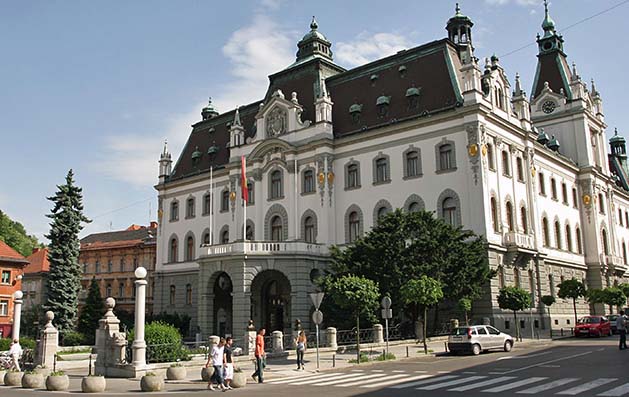In order to provide input and collaborate with the key players in the transition to a zero-emission, digital, safe, secure and competitive waterborne sector, the University of Ljubljana (Slovenia) has recently joined the Waterborne Technology Platform.
The Waterborne Technology Platform (TP) is the European research and innovation platform for the waterborne industries, providing policy guidance to the European institutions regarding research, development and innovation, as well as the deployment of these innovations. Furthermore, the Waterborne TP is coordinating the private side of the Partnership on Zero-Emission Waterborne Transport with the European Commission. Currently representing 119 members, from 21 European Member States and four other European Countries, the Waterborne TP has a significant footprint in the European Union.
The University of Ljubljana is the oldest and largest university in Slovenia covering a broad spectrum of knowledge and expertise related to waterborne technologies. At the Faculty of Mechanical Engineering, knowledge and skills in machine design, fuel cells, batteries, welding and mechatronics are some of the areas of expertise. In addition, the University consist of 26 faculties and academies including a Faculty of Maritime Studies and Transport, a Biotechnical Faculty, a Faculty of Economics, a Faculty of Electrotechnics and others which all have a waterborne hook in their research programmes.
Eero Lehtovaara, Chair, Board of Directors Waterborne TP, said: “We welcome Slovenia as new member, since the activities of the Waterborne Technology Platform focus on the challenges and opportunities of the broader European waterborne sector. The unique characteristics of the Slovenian waterborne sector, and the wealth of knowledge available in the country will certainly contribute to shaping our future priorities, and benefit the research and innovation activities in Slovenia and across Europe”
Nikola Vukašinović, Assistant Professor, University of Ljubljana added: “Since ancient times Slovenia has been in the crossroads of main European transportation routes including river and sea borne transportation. Our preserved and fragile ecosystems on the other hand require great attention and sensibility not only locally but also on a regional and global scale. University of Ljubljana is seriously committed to solving pressing environmental and engineering challenges which affect our everyday life.”



